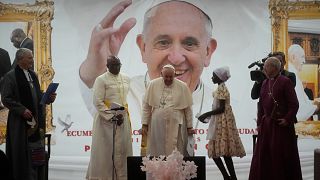Martin Luther King
On Aug. 28, 1963, from the Lincoln Memorial in Washington, Martin Luther King Jr. began by speaking of poverty, segregation and discrimination and how the United States had reneged on its promise of equality for Black Americans.
However, reflecting on if America has achieved King’s dream sixty years ago, Martin Luther King III, King’s oldest son, said he thought “we would be further”.
“It's a totally different time for the 60th because really things have gone temporarily backward. Civility in the political space is temporarily lost,” King III said. “You have issues where hate and hostility and bigotry are at an all-time high. It may certainly exist in 1963, but it is metastasized to something that we are not familiar with.”
King III said that is why we need to constantly review and learn from our history.
“I want to see this mosaic of America that is saying in unison, I am the dream, and we going to work to do everything we can to ultimately realize the dream,” King III said.
Organizers intend to remind the nation that the original march wasn´t just about dreaming of a country that lived up to its promises of equality and liberty to pursue happiness. They wanted legislative action then, and they want the same now.
The survival of American democracy depends on it, the organizers say.












01:00
Marking 20 years since the 2004 Indian Ocean Tsunami
01:27
1,000 days of war in Ukraine with no sign of an end
01:00
WATCH: Mothers honor Srebrenica victims ahead of U.N. genocide vote
02:03
Katogota: 24 years later, the cry for justice still echoes in DRC
01:44
Raw emotions and lots of tears as athletes pay tribute to Kelvin Kiptum
01:23
Bernice King urges adoption of MLK's philosophy to prevent global self-destruction